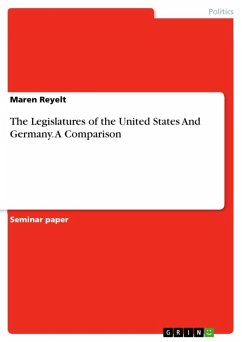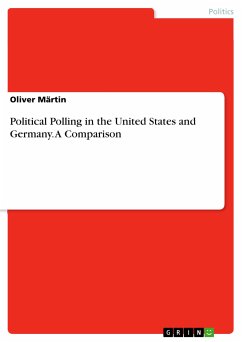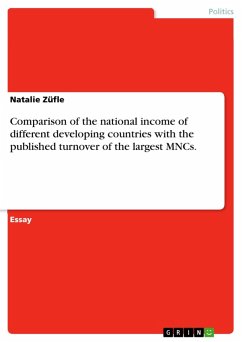Seminar paper from the year 2001 in the subject Politics - Region: USA, grade: very good, University of Wyoming (Department of Political Science), course: Congress and the Presidency, language: English, abstract: "The German Federal Republic is classified as a parliamentary democracy ... [where] the principle portion of executive power is vested in a ... chancellor and his cabinet who are responsible to a parliament and removable by the latter. By contrast, the presidential system ... in the United States vests executive power in a president who is both head of state and head of government." Regarding this quoted statement, the purpose of my paper shall be a comparison between the United States' executive and the German counterpart. According to this, especially the functions, roles, and powers of the respective chief executives shall be described and compared. In addition, I would like to portray the reciprocal relationship between the United States' president, the Executive Office of the President, and the bureaucracy on the one hand, and the reciprocal relationship between the German chancellor, his chancellor's office (Bundeskanzleramt), the cabinet, his governmental coalition (Regierungskoalition), and the federal ministers. In general, I want to achieve a comparison between both systems regarding their executive powers by pointing out the differences as well as the correspondences between them. Because of this general approach, it is not possible to describe everything in detail to avoid exceeding the framework of my paper. In cases when it will be not possible to provide detailed information, I will recommend for further readings in the footnotes. Although, this paper shall mainly deal with the respective executive power and although the separation of power between the governmental branches in the United States is stricter than in the federal Republic of Germany, it is unavoidable to draw some conclusions regarding the role of the executive in the interplay with the legislative (the United States' Congress and the German Bundestag). These references within the examination of the executive power shall be made because in carrying out their roles the branches are bound on each other in their interaction within the political system. Furthermore, these references serve for a better understanding of the whole role of the executive in the respective country.
Dieser Download kann aus rechtlichen Gründen nur mit Rechnungsadresse in A, B, BG, CY, CZ, D, DK, EW, E, FIN, F, GR, HR, H, IRL, I, LT, L, LR, M, NL, PL, P, R, S, SLO, SK ausgeliefert werden.









